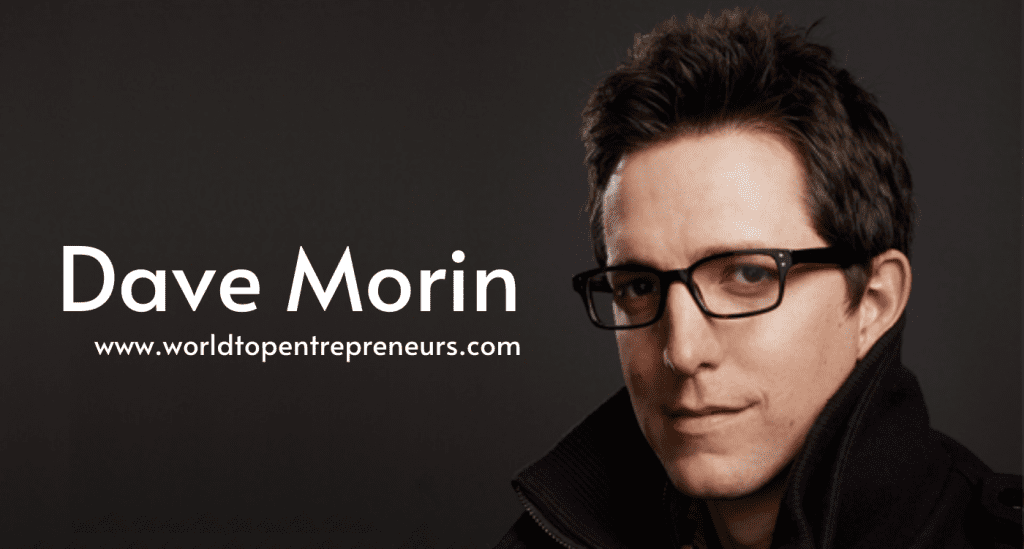Travis VanderZanden has made a name for himself in the tech world as a visionary entrepreneur, particularly known for his role in transforming urban mobility through his company, Bird. As a leader in the electric scooter revolution, VanderZanden’s journey from a young entrepreneur to the CEO of a prominent tech company is both inspiring and emblematic of the rapidly evolving landscape of transportation technology.
Early Life and Career Beginnings
Born and raised in a small town in Wisconsin, VanderZanden’s early life was marked by a keen interest in technology and entrepreneurship. His fascination with innovation was evident from a young age, and he channeled this passion into academic and professional pursuits. VanderZanden attended the University of Wisconsin-Madison, where he majored in Economics and Computer Science. This combination of skills provided him with a solid foundation in both the analytical and technical aspects of business.
After college, VanderZanden began his career in Silicon Valley, where he worked at several high-profile tech companies. His early roles included positions at companies like eBay and Zynga, where he honed his skills in product management and strategy. It was during this period that VanderZanden developed a deep understanding of how technology could drive consumer behavior and disrupt traditional industries.
The Birth of Bird
The concept of Bird emerged from VanderZanden’s vision to address a growing urban mobility problem. As cities around the world grappled with traffic congestion and pollution, VanderZanden saw an opportunity to introduce a solution that was both environmentally friendly and highly efficient. This vision led to the creation of Bird, a company that would revolutionize the way people navigate urban environments.
Launched in 2017, Bird aimed to provide a convenient and sustainable alternative to traditional transportation methods. The company’s core product—a fleet of electric scooters—offered a new way for people to travel short distances quickly and with minimal environmental impact. VanderZanden’s innovative approach to scooter-sharing combined technology with practical urban planning, creating a service that could adapt to the needs of modern city dwellers.
Navigating Challenges and Scaling Up
Starting a tech company in the highly competitive field of urban mobility was not without its challenges. Bird faced numerous hurdles in its early days, including regulatory obstacles, logistical issues, and the task of building a user base from scratch. VanderZanden’s leadership was crucial in navigating these challenges and steering the company toward success.
One of the key challenges Bird encountered was dealing with regulatory resistance. Many cities were initially wary of the influx of electric scooters, leading to debates over safety, traffic regulations, and public space usage. VanderZanden’s approach to these issues was both proactive and collaborative. He worked closely with city officials and policymakers to address concerns and develop regulations that balanced innovation with public safety. This collaborative stance helped Bird gain acceptance and expand its operations to numerous cities across the globe.
Another significant challenge was scaling the business while maintaining a high level of service. As Bird rapidly expanded its fleet and geographic reach, ensuring the reliability and safety of its scooters became paramount. VanderZanden implemented rigorous quality control measures and invested in technology to track scooter usage and maintenance. This focus on operational excellence helped Bird build a reputation for reliability and customer satisfaction.
Innovation and Technology
At the heart of Bird’s success is its commitment to innovation. VanderZanden’s vision extended beyond merely providing electric scooters; he aimed to create a comprehensive transportation ecosystem that leveraged technology to improve urban mobility. Bird’s platform integrates various technological features to enhance user experience and operational efficiency.
One of the key technological innovations introduced by Bird is its advanced scooter tracking system. This system allows Bird to monitor the location, usage, and condition of each scooter in real-time. By analyzing this data, Bird can optimize scooter placement, predict maintenance needs, and ensure that scooters are available where they are most needed. This data-driven approach has been instrumental in managing Bird’s fleet and improving service quality.
Additionally, Bird has invested in developing its own proprietary electric scooter models. These scooters are designed with user comfort and safety in mind, featuring enhancements such as improved battery life, robust braking systems, and weather-resistant components. VanderZanden’s focus on product development has enabled Bird to maintain a competitive edge in the rapidly evolving market for electric mobility solutions.
Social Impact and Sustainability
Under VanderZanden’s leadership, Bird has also emphasized its commitment to social impact and sustainability. The company’s mission is not only to provide a convenient transportation option but also to contribute to environmental and social betterment. Bird’s electric scooters represent a cleaner alternative to traditional gasoline-powered vehicles, helping to reduce carbon emissions and alleviate urban congestion.
Bird has also engaged in various initiatives to promote environmental sustainability. For example, the company has implemented a battery recycling program to minimize waste and reduce the environmental impact of its operations. Additionally, Bird has partnered with local organizations to support community projects and promote safe and responsible scooter use.
VanderZanden’s commitment to social responsibility extends beyond environmental concerns. Bird has made efforts to ensure that its services are accessible to a diverse range of users, including those with disabilities. By working with advocacy groups and incorporating user feedback, Bird aims to create a more inclusive transportation solution that meets the needs of all city residents.
The Future of Urban Mobility
Looking ahead, VanderZanden and Bird are poised to play a significant role in shaping the future of urban mobility. As cities continue to evolve and face new transportation challenges, Bird’s innovative approach provides a glimpse into the possibilities of a more sustainable and efficient urban transit system.
One area of future development for Bird is the integration of its electric scooters with other forms of public transportation. VanderZanden envisions a seamless transportation network where scooters complement existing transit options, such as buses and trains. This integrated approach could enhance the overall efficiency of urban transportation and provide users with a more comprehensive range of travel options.
Another potential area of growth is the expansion of Bird’s technology and services into new markets. As global interest in electric mobility continues to rise, Bird is well-positioned to explore new geographic regions and offer its services to a broader audience. VanderZanden’s track record of successful expansion and innovation suggests that Bird will remain at the forefront of the electric scooter revolution.
Personal Reflections and Leadership Style
Travis VanderZanden’s leadership style is often characterized by a combination of strategic vision and hands-on involvement. His ability to balance big-picture thinking with attention to detail has been instrumental in driving Bird’s success. VanderZanden is known for his willingness to take calculated risks and embrace new ideas, qualities that have enabled him to navigate the complexities of the tech industry and lead Bird through periods of rapid growth and transformation.
In interviews and public appearances, VanderZanden often emphasizes the importance of teamwork and collaboration. He attributes much of Bird’s success to the dedication and creativity of his team, highlighting the collective effort involved in building and scaling the company. This collaborative approach is reflected in Bird’s organizational culture, which values innovation, adaptability, and a shared commitment to the company’s mission.
Conclusion
Travis VanderZanden’s journey from a young entrepreneur with a vision to the CEO of Bird represents a compelling narrative of innovation, resilience, and leadership. Through Bird, VanderZanden has not only introduced a groundbreaking transportation solution but also demonstrated how technology can be harnessed to address pressing urban challenges. As Bird continues to evolve and expand, VanderZanden’s impact on the future of urban mobility is likely to be profound and enduring.
His story serves as an inspiration to aspiring entrepreneurs and a testament to the power of visionary thinking in driving meaningful change. VanderZanden’s commitment to innovation, sustainability, and social responsibility reflects a broader trend in the tech industry toward creating solutions that benefit both people and the planet. As cities around the world embrace new modes of transportation, Bird stands at the forefront of this transformative movement, with Travis VanderZanden leading the charge.





















